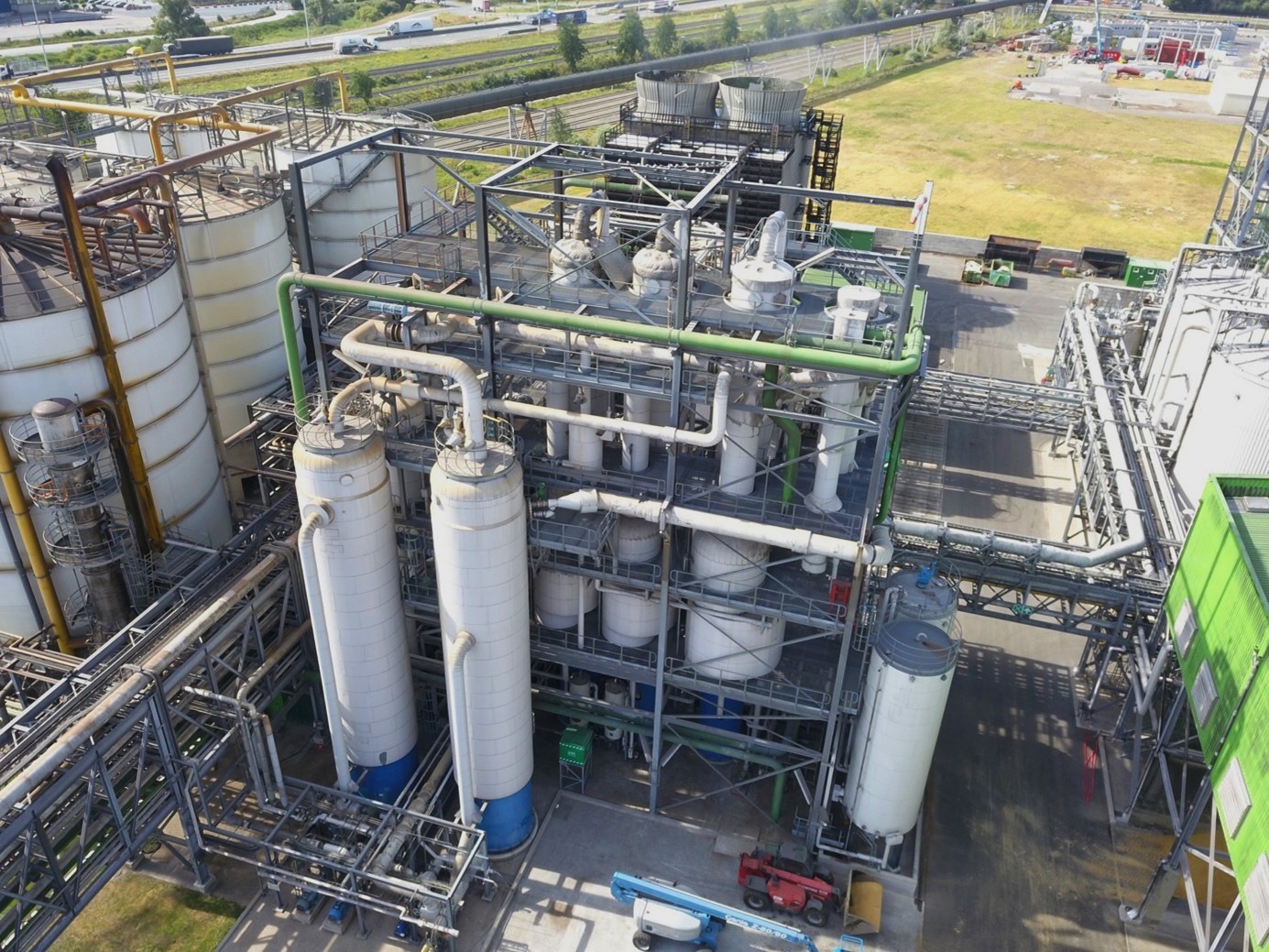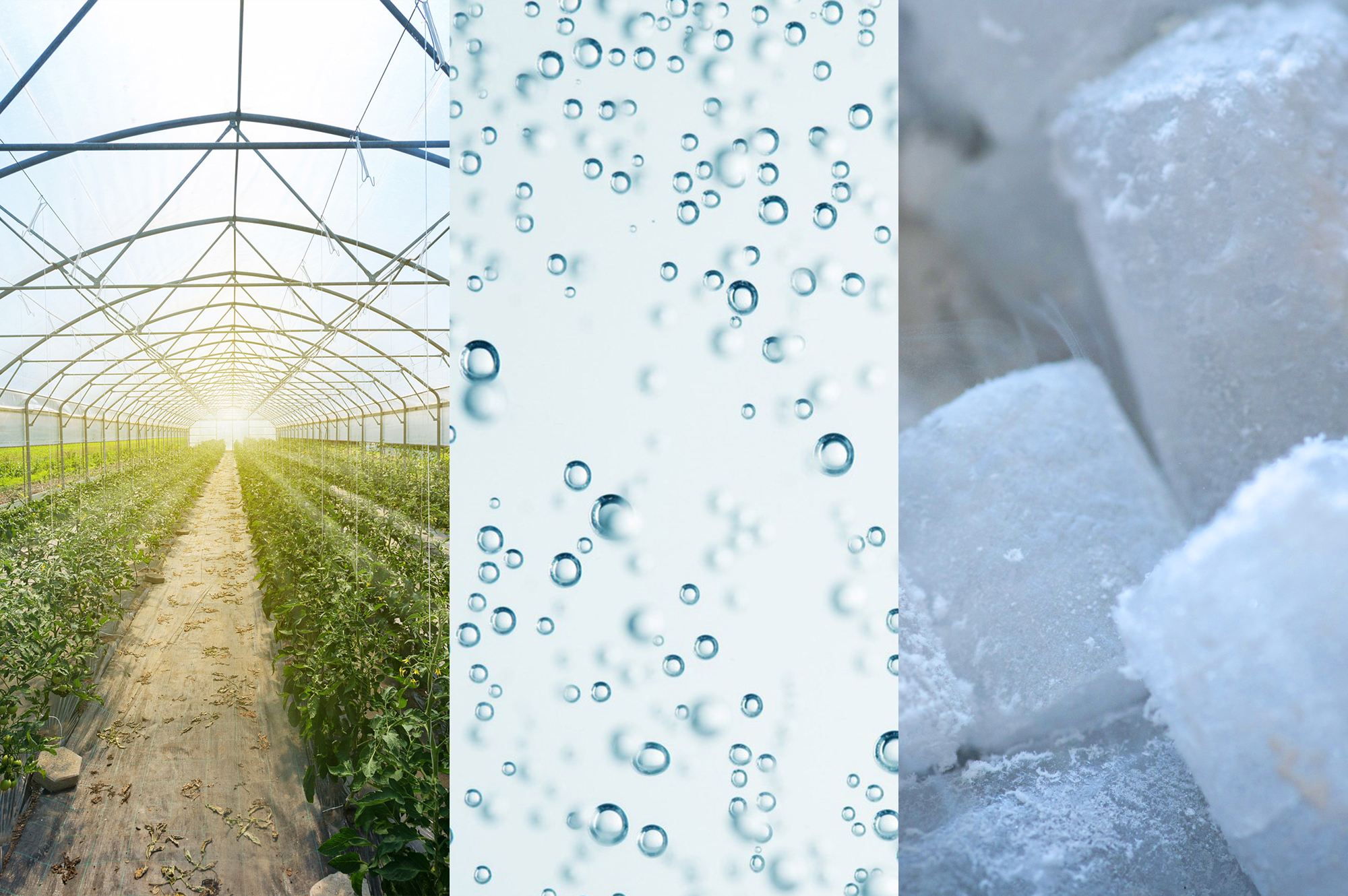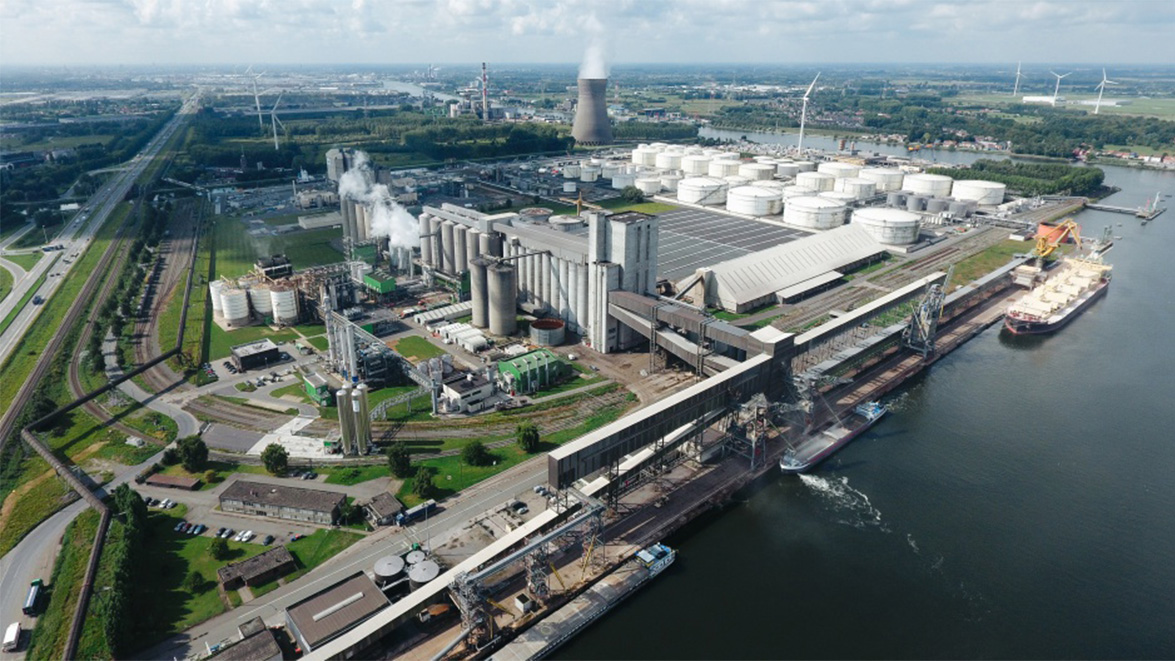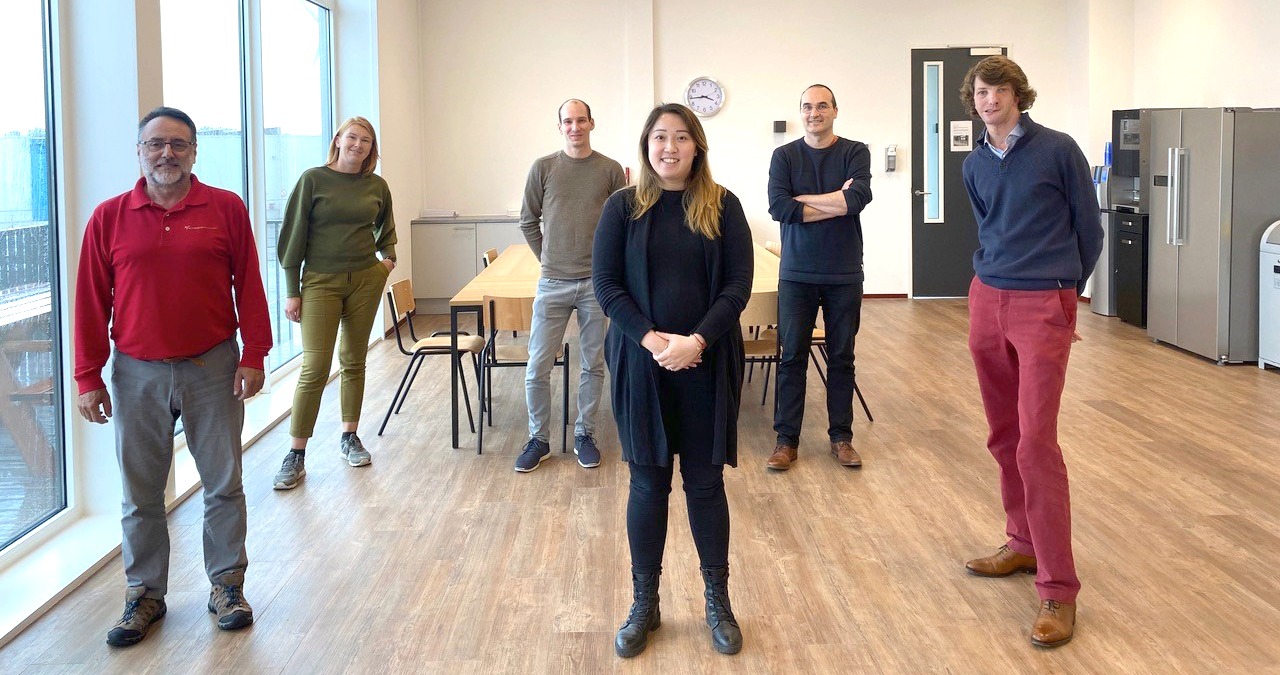Alco Bio Fuel is constantly investing to improve its energy efficiency. Our goal is to produce as much bio-ethanol as possible with the least amount of energy needed and without creating any waste-streams.
The main feedstock we use, corn, is processed in an optimal way.
All this of course with respect for stringent sustainability criteria as defined in the Renewable Energy Directive.
An ethanol production plant produces much more than ethanol only.
For making the ethanol we just use the sugar (starch) part in the corn. That still leaves valuable elements like protein, fibers and oil.
For each ton of ethanol produced, we equally produce approximately one ton of animal feed and biogenic CO2.
The ethanol production process results in a concentrated protein mash that is ideal for adding to existing animal feed. In Europe it is impossible to grow protein-rich crops that can compete with cheap genetically modified (GM) soy meal coming from (South)-America. Our protein-feed is one of the few ways that can help the EU to reduce its huge dependency on feed-protein coming from other parts of the world. Replacing GM soy meal by home-grown product also means less deforestation in South-America and less emission of CO2 due to the avoidance of a long sea voyage.
In addition to a very energy efficient production process, our greenhouse gas emission savings are enhanced thanks to the capturing of biogenic CO2 which replaced fossil-based CO2.
We are proud that Alco Bio Fuel constantly strives to be best-in-class in respect of greenhouse gas emissions savings, thanks to its efficiency and innovation. Where the average savings of CO2 by EU bio-ethanol producing units is 73% compared to the emissions of petrol, the CO2 saving of Alco Bio Fuel is over 90%.
Alco Bio Fuel was the first bio-ethanol installation production facility in Europe that became ISCC certified.
Cogeneration
Thanks to our cogeneration unit, we produce electricity and steam with a high energy efficiency; 35% better than the production of electricity and steam separately. The amount of steam corresponds exactly to the needs of our power plant, while 20% of the surplus electricity production is supplied to the grid, which corresponds to the consumption of 10,000 households.

CO₂ capture and utilization
Alco Bio Fuel and the industrial gas suppliers Messer Benelux and IJsfabriek Strombeek invested in a carbon dioxide recovery unit, named Green CO2, to reduce CO2 emissions in Belgium.
Alco Bio Fuel is one of the few EU ethanol installations that applies this technique of Capturing Carbon and Utilizing it also known as CCU. The green CO2 replaces the use of fossil-based CO2.
This unit is operational since summer 2016 and captures and processes no less than 100,000 tons of green CO2 each year. A second line of the same capacity has started since early 2022.
This installation captures and purifies the Green CO2 gas released during the ethanol fermentation process and converts it into a liquid can be used in the food and drink industry, in water purification, for refrigerated transports or as a chemical source.
Besides using this CO2 in an environmental-friendly way it also results in a reduced carbon-footprint of the bio-ethanol we produce. Thanks to this capturing and re-using of CO2 Alco Bio Fuel is one of the few EU bio-ethanol producers with a greenhouse gas emission saving that goes far above the EU average.

Logistics by water
Thanks to our perfect location within the harbour of Ghent, we are able to perform the logistics of our raw materials (mainly corn) and our end product ethanol maximally over water, which is the most sustainable way of transport.

Green Team
Guarding sustainability principles and working towards the lowest carbon footprint possible, are central drivers in the medium to long-term vision of Alco. To coordinate all the efforts around the core value of raising the sustainability of Alco and to do this beyond the boundaries of the individual companies in the group, a multidisciplinary sustainability task force was created: The Green Team.
The team has a number of well-defined tasks. Like the design of uniform procedures on sustainability for the entire Group, overseeing internal compliance with these procedures, communicating and educating on sustainability topics and related matters, and providing support for the various technical teams within the Group on greenhouse gas calculations following changes in the production process. The calculations follow strictly the EU procedures defined in the Renewable Energy Directive.
The work of the Green Team also involves external related tasks such as making the yearly ISCC audits and to keep abreast of regulatory developments at EU and national level.
And finally, it has the task to look to the future and to seek for alternatives that will deliver on Alco’s target of a climate-neutrality by 2030.

Alco’s Climate Plan
As Sustainable Pioneers our ambition is to steer our bio-refineries towards climate neutrality. To achieve this, we’ve developed a comprehensive Climate Plan featuring several concrete actions.
Action 1: Biogenic CO2 capture
At our bio-refineries in Ghent and Rotterdam we capture and reuse the biogenic CO2, released during the fermentation process, which replaces fossil-based CO2 traditionally used in greenhouses, refrigerated transport, and sparkling beverages. The biogenic CO2 was initially absorbed from the air by the crops we use as raw material, during their growth via photosynthesis: a short cycle of one year, unlike fossil sources. Thanks to our ongoing technical and commercial efforts, we are continually increasing the volume of CO2 captured
Action 2: Energy efficiency
We invest annually in significant energy-saving programs, aiming to reduce our natural gas consumption by 30% compared to 2021 levels. Before 2030, our bio-refineries should capture more biogenic CO2 than CO2 generated using fossil gas.
Action 3: Renewable energy sources
We are actively working on multiple projects to replace natural gas with renewable energy sources, such as green steam generated from biomass waste, wind, and solar electricity.
Other initiatives:
- Studying renewable and low carbon e-fuels production projects (combining biogenic CO2 and hydrogen)
- Exploring the possibility to capture our remaining fossil CO2 and store it for example in North Sea empty gas fields (enhancing further the reduction in our carbon footprint)
- At Alco’s headquarters in Brussels, we started in 2021 independent audits for CO2 emissions generated by our corporate activities.
- Our office is undergoing a major transformation process to join the top 15% most efficient office buildings in Brussels.
- Alco also sponsors the Belgian Société Royale Forestière in a long-term research and reforestation program.
